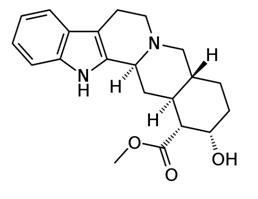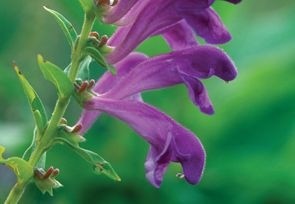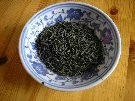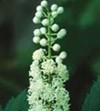USDA expresses skullcap supplement concerns with new analytical method
According to a study published in the Analytical and Bioanalytical Chemistry, a technique called flow injection mass spectrometry fingerprinting provides a “simple, fast, and easy to use method for assessing the quality of [Scutellaria lateriflora, commonly known as skullcap]”.
Skullcap is used in numerous herbal products in sleep-aid/ anti-anxiety formulations. However, according to the USDA’s Jianghao Sun and Pei Chen, it is occasionally adulterated or contaminated with Teucrium canadense and/or Teucrium chamaedrys (germander). This occurs because of “morphological similarities between the two genera”, said the researchers.
In contract to skullcap, germander is reported to contain compounds called diterpenes that are toxic to the liver.
“Despite the potential hepatotoxicity introduced by germander contamination, analytical methodologies for the authentication and quality assessment of S. lateriflora-based dietary supplements have not been reported,” explained Sun and Chen.
The Beltsville, Maryland-based USDA scientists therefore developed a fingerprinting method to identify possible contamination/ adulteration, and used this to survey commercially available skullcap-based dietary supplements in the USA.
Method and survey data
The flow injection mass spectrometry fingerprinting method developed is described as “simple, fast, and easy to use” and the main advantage is the “almost non-existent method development time”, wrote the scientists.
“It also saves resources (column, mobile phases, time, and manpower) compared to traditional LC/ MS methods.
“More importantly, the method does an excellent job of distinguishing contamination/adulteration in [S. lateriflora-based dietary supplements] as confirmed by UHPLC-HRMS.”
Alarm?
Of the 11 commercially available skullcap-based dietary supplements tested, only five of them were actually made from skullcap.
“More importantly, [Teucrium canadense] was used in four [S. lateriflora-based dietary supplements] and could be harmful to consumers,” added the scientists.
“Current dietary supplement good manufacturing practice (GMP) regulations require manufacturers to verify the identity of the ingredients they use.
“Based on our results, enforcement of such verification is imperative for skullcap products.”
Long-standing problem?
Commenting independently on the new USDA analysis, Mark Blumenthal, founder and executive director of the American Botanical Council (ABC), said the news that the news that 5 of 11 commercial "scullcap" products analyzed in this study actually contain germander is "disappointing, but by no means surprising".
"Many experts in the herb community have known about this misidentification for many years," he said. "ABC published an article by botanist Steven Foster on this problem in HerbalGram in the fall of 1985! Foster cited this problem having been around for decades."
Blumenthal added that ABC and other groups have attempted to inform the industry about this problem, including the medicinal plant morphology identification book jointly published by the Missouri Botanical Garden and ABC in 2006 and Roy Upton's "excellent" American Herbal Pharmacopoeia monograph, which goes into further detail as to how to differentiate the 2 genera of plants.
In addition, the American Herbal Products Association (AHPA) has the scullcap-germander misidentification issue listed on its list of adulterated herbs, which can be found under the 'Trade Recommendations" section of the AHPA website, "thereby making it a policy for all AHPA members to check for this well-known misidentification/confusion as a routine part of their quality control procedures.
Unintentional
"This is presumably a case of inadequate quality control on the part of some members in the supply side of the herbal industry, as well as inadequate quality control on the part of buyers who are manufacturing some consumer products, which apparently are not adequately qualifying their suppliers, as required by the FDA's FINAL GMP Rule.
"However, unlike some other examples of quality control problems in the herbal community, this does not appear to be intentional; that is, this case is not an example of what is becoming commonly referred to as Economically Motivated Adulteration.
"Nevertheless, the fact that this is still occurring, after having been known for so many years, is quite disappointing, but, as noted previously, not surprising," he added.
Source: Analytical and Bioanalytical Chemistry
2011, Volume 401, Number 5, Pages 1581-1588
“A flow-injection mass spectrometry fingerprinting method for authentication and quality assessment of Scutellaria lateriflora-based dietary supplements”
Authors: J. Sun, P. Chen
















